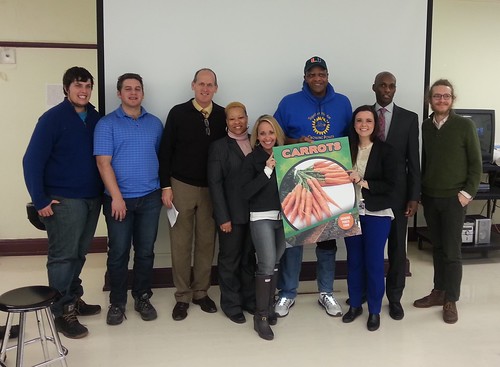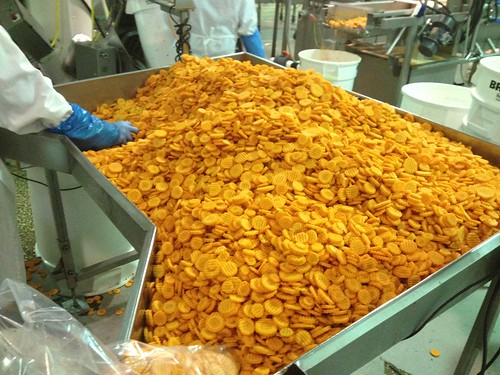
In the past few years I’ve seen an increasing number of news stories about successful farm to school programs. As reflected in the first USDA Farm to School Census, farm to school programs are thriving from Alaska to Florida and in every state between.
I attended a recent event that demonstrates just how quickly—and by what lengths—farm to school is growing. On January 15th, students in all Chicago Public Schools (CPS) were served sliced carrots grown at a farm only 90 miles away in Milwaukee.
Yes, you read that right. A farm in Milwaukee.
Growing Power, a small urban farm founded by former NBA player Will Allen, was approached by Linda Mallers of FarmLogix, who supports the school district’s farm to school program. Because CPS has over 400,000 students, more than a truckload of carrots was needed. Growing the required amount—36,000 pounds—required a lot of planning.
An African saying holds that it takes a village to raise a child. It might also be said that it takes a village to make farm to school thrive. Food hubs, processors, transporters, food service companies and schools—not to mention farmers, all play vital roles in growing a robust and thriving farm to school system.
From the beginning, the commitment of CPS Nutrition Services Director Leslie Fowler and Aramark was essential to the project’s success. Innovative tech firm FarmLogix played a key role throughout, working with nutritionists, supply chain and marketing staff from Aramark (CPS’ foodservice vendor) on pricing, processing specifications, delivery scheduling and promotion. FarmLogix also worked with Growing Power’s team on the harvest schedule and with the processor and distributors on production and scheduling. It took several weeks and the contributions of many to get the carrots to students’ plates.

Why go through so much trouble to source food from local farms? Well, I spoke to a number of people involved, and they were all excited about the purchase and the events held the day the carrots were served.
For CPS students, the nutritious carrots connected them to a local farmer, Will Allen. On the day the carrots were served, Allen visited three schools and talked to hundreds of students about the importance of eating fruits and vegetables. For Growing Power and its Milwaukee neighborhood, the money it received for the carrots help support farm and food processing jobs.
For FarmLogix, a small company which is quickly expanding its farm to school business, the purchase and relationships it has created means it can continue to sustain and grow its business—which has included hiring new staff.
Yes, it takes a village to grow farm to school, but the effort yields considerable dividends. From healthier Chicago children to thriving farms and small businesses, Farm to School delivers.

